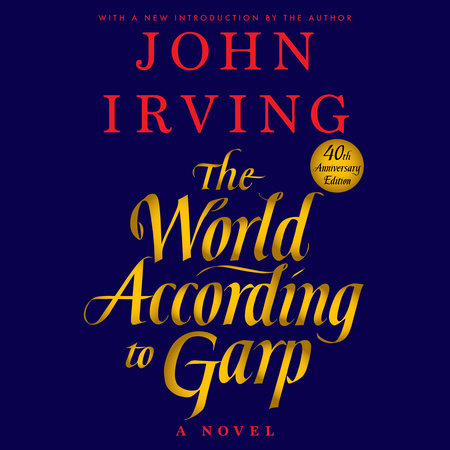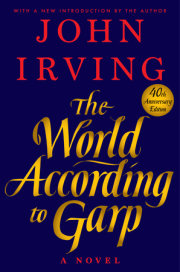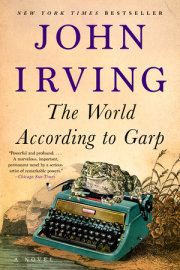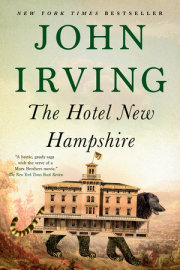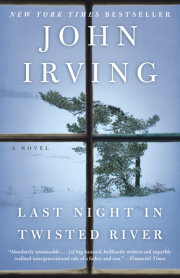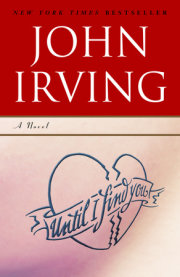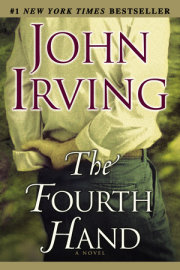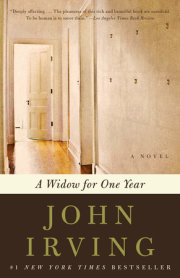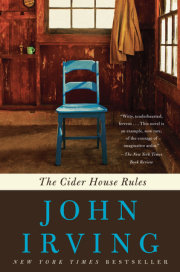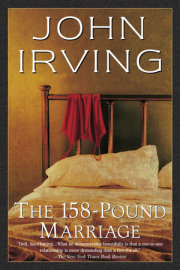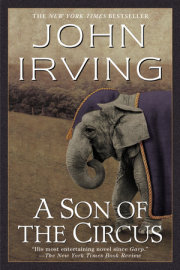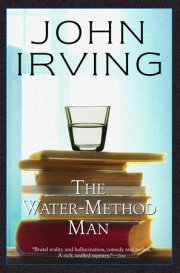BOSTON MERCYGarp's mother Jenny Fields, was arrested in Boston in 1942 for wounding a man in a movie theater. This was shortly after the Japanese had bombed Pearl Harbor and people were being tolerant of soldiers, because suddenly everyone was a soldier, but jenny Fields was quite firm in her intolerance of the behavior of men in general and soldiers in particular. In the movie theater she had to move three times, but each time the soldier moved closer to her until she was sitting against the musty wall, her view of the newsreel almost blocked by some silly colonnade, and she resolved she would not get up and move again. The soldier moved once more and sat beside her.
jenny was twenty-two. She had dropped out of college almost as soon as she'd begun, but she had finished her nursing-school program at the head of her class and she enjoyed being a nurse. She was an athletic-looking young woman who always had high color in her cheeks; she had dark, glossy hair and what her mother called a mannish way of walking (she swung her arms), and her rump and hips were so slender and hard that, from behind, she resembled a young boy. In jenny's opinion, her breasts were too large; she thought the ostentation of her bust made her look "cheap and easy."
She was nothing of the kind. In fact, she had dropped out of college when she suspected that the chief purpose of her parents' sending her to Wellesley had been to have her dated by and eventually mated to some well-bred man. The recommendation of Wellesley had come from her older brothers, who had assured her parents that Wellesley women were not thought of loosely and were considered high in marriage potential. jenny felt that her education was merely a polite way to bide time, as if she were really a cow, being prepared only for the insertion of the device for artificial insemination.
Her declared major had been English literature, but when it seemed to her that her classmates were chiefly concerned with acquiring the sophistication and the poise to deal with men, she had no trouble leaving literature for nursing. She saw nursing as something that could be put into immediate practice, and its study had no ulterior motive that jenny could see (later she wrote, in her famous autobiography, that too many nurses put themselves on display for too many doctors; but then her nursing days were over).
She liked the simple, no-nonsense uniform; the blouse of the dress made less of her breasts; the shoes were comfortable, and suited to her fast pace of walking. When she was at the night desk, she could still read. She did not miss the young college men, who were sulky and disappointed if you wouldn't compromise yourself, and superior and aloof if you would. At the hospital she saw more soldiers and working boys than college men, and they were franker and less pretentious in their expectations; if you compromised yourself a little, they seemed at least grateful to see you again. Then, suddenly, everyone was a soldier-and full of the self-importance of college boys-and jenny Fields stopped having anything to do with men. "My mother," Garp wrote, "was a lone wolf."
Copyright © 1998 by John Irving. All rights reserved. No part of this excerpt may be reproduced or reprinted without permission in writing from the publisher.

